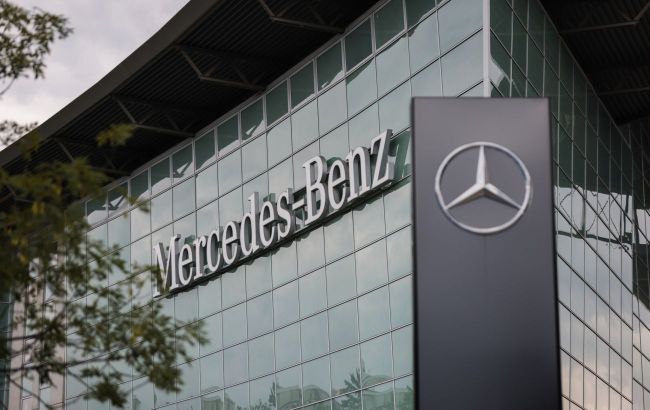Major blow: German auto industry to lose billions over Trump tariffs
 Photo: Mercedes-Benz will be one of the victims of Trump (Getty Images)
Photo: Mercedes-Benz will be one of the victims of Trump (Getty Images)
German car manufacturers could lose up to 10 billion euros due to tariffs imposed by US President Donald Trump. The White House's tariff policy could deal a major blow amid broader challenges in the industry, the Financial Times reports.
Three leading automakers in Germany are now facing potential financial losses. At the same time, the industry as a whole is already suffering from weak demand for European cars and intense competition from Chinese automakers - European markets have been flooded with cheap Chinese electric vehicles.
The automotive sector in Europe has become one of the hardest hit by the trade war launched by US President Donald Trump. Analysts at Visible Alpha attempted to calculate the losses to the German auto industry from US actions:
- Mercedes-Benz revenue could drop from 9.4 billion euros in 2024 to 3 billion euros by the end of 2025;
- Volkswagen revenue is expected to fall from 7.1 billion euros to 3.3 billion euros;
- BMW revenue could decline from 4.8 billion euros to 4.4 billion euros.
The situation could get even worse, as companies themselves are already lowering their profit forecasts - Volkswagen, for example, revised its forecast from a 2–5 billion euro range to just 1–3 billion euros.
"Higher tariffs will mean rising costs for exports to the US, purchasing parts, and adjustments to the supply chain, all of which will put pressure on cash flow," the media resource noted.
At the moment, Volkswagen, Mercedes-Benz, and BMW are already under tariff pressure: they currently pay a 27.5% tariff for shipping their cars from Germany and Mexico to the US.
Not all doom and gloom
On the other hand, European carmakers have a significant financial cushion after accumulating substantial reserves during the semiconductor shortage caused by the COVID-19 pandemic. The combined industrial liquidity of VW, Mercedes-Benz, and BMW exceeds 100 billion euros, meaning that a 10-billion-euro loss, while unpleasant, is far from fatal.
The report notes that Trump's tariffs will hurt not only European but also American automakers, including General Motors and Tesla. European parts suppliers in the US have significantly raised prices to offset the tariffs.
Analysts and experts don't rule out that all these additional costs will ultimately be passed on to US consumers. At the same time, there is a major risk of decreased demand, and overall, experts add, the rising cost of cars for American buyers is becoming more of a political issue than an economic one.
Tariff war between European Union and US
Currently, the EU faces US tariffs on more than 70% of its exports, including a 50% tariff on steel and aluminum, an additional 25% on cars and auto parts on top of the existing 2.5%, and a 10% duty on most other EU goods.
In response, the EU plans to impose a 30% tariff on American exports worth around 100 billion euros ($117 billion) if the US does not back down from its plans to implement tariffs after August 1.
Trump and European Commission President Ursula von der Leyen were planning to meet on July 27 to reach a tariff agreement and avoid a trade war.

